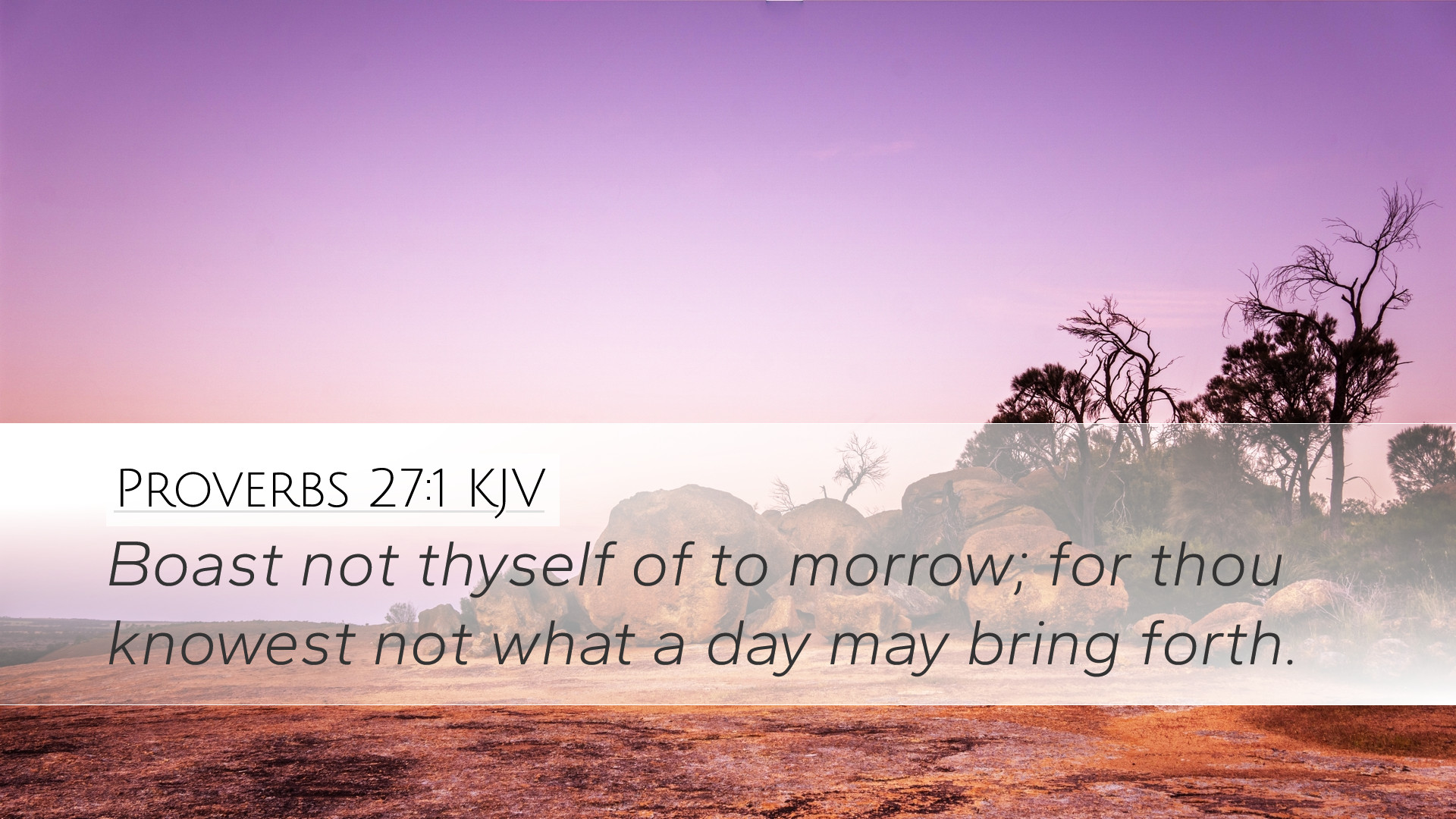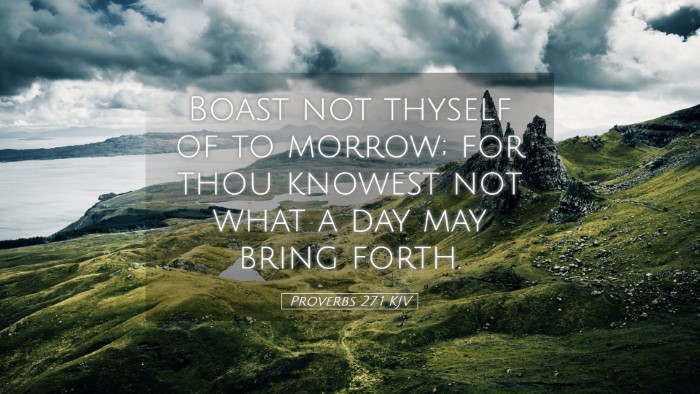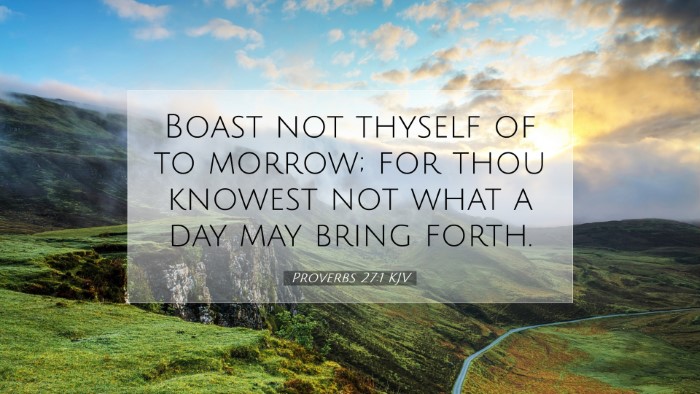Commentary on Proverbs 27:1
Verse: "Boast not thyself of to morrow; for thou knowest not what a day may bring forth." (Proverbs 27:1)
Introduction
This verse encapsulates a profound wisdom concerning the uncertainty of life and the folly of presuming on the future. The admonition not to boast of tomorrow highlights the human tendency to overestimate control over future events while underestimating the unpredictability of life. In drawing insights from various public domain commentaries by esteemed theologians such as Matthew Henry, Albert Barnes, and Adam Clarke, we explore the multifaceted implications of this verse.
The Import of Not Boasting
Matthew Henry emphasizes that "to boast of tomorrow" is to express an unwarranted confidence in the future. He cautions against a presumptive disposition that might lead one to overlook the inherent uncertainties of life and God's sovereignty over time. This reflects a deeper spiritual principle: the reliance on God's providence rather than on human plans.
Albert Barnes further elucidates this point, noting the temporality of human existence and the transient nature of plans made without divine consideration. He argues that while planning for the future is wise, boasting about it is foolish because future outcomes are beyond our control.
Understanding Tomorrow's Uncertainty
Adam Clarke contributes by applying this wisdom practically. He suggests that humans are not inherently equipped to foresee their futures, as tomorrow may bring unforeseen trials or blessings. As such, one should approach each day with humility and a consciousness of Divine will.
- Humility: Recognizing our limitations encourages a humble approach to planning.
- Dependency on God: Our understanding should lean into the divine providence, reflecting a reliance on God's will over our aspirations.
Theological Implications
This verse speaks to a broader theological narrative found throughout Scripture concerning the nature of time and God's authority. Both Henry and Barnes connect this principle with the biblical understanding of human life as fleeting, citing James 4:14, which likens our lives to a vapor. Here, the emphasis is on the ephemeral quality of existence and the need to live with an awareness of our mortality.
Clarke's commentary provides further theological depth by linking this verse to the necessity of placing trust in God’s overarching plan. The uncertainty of tomorrow serves not only as a caution but also as a call to live faithfully today.
Practical Applications for Believers
For pastors, students, theologians, and scholars, Proverbs 27:1 provides crucial insights that can be applied in various contexts:
- Pastoral Care: This verse can serve as a foundation in counseling situations, particularly in providing comfort and perspective during times of uncertainty and distress.
- Preaching: Sermons can emphasize the importance of living in the present and making wise choices today while submitting future plans to God.
- Personal Reflection: Individuals are encouraged to meditate on their plans, recognizing the need for humility and dependence on God.
Conclusion
In summary, Proverbs 27:1 teaches the wisdom of humility regarding the uncertainties of the future and the importance of reliance on God. The insights from Matthew Henry, Albert Barnes, and Adam Clarke provide a rich tapestry of understanding, urging believers to approach life with a reverent acknowledgment of God's sovereignty. This principle not only fosters spiritual growth but also encourages a deeper trust in the divine nature, highlighting the need to live faithfully in the present moment, all while recognizing God's ultimate control over the unfolding of our lives.


